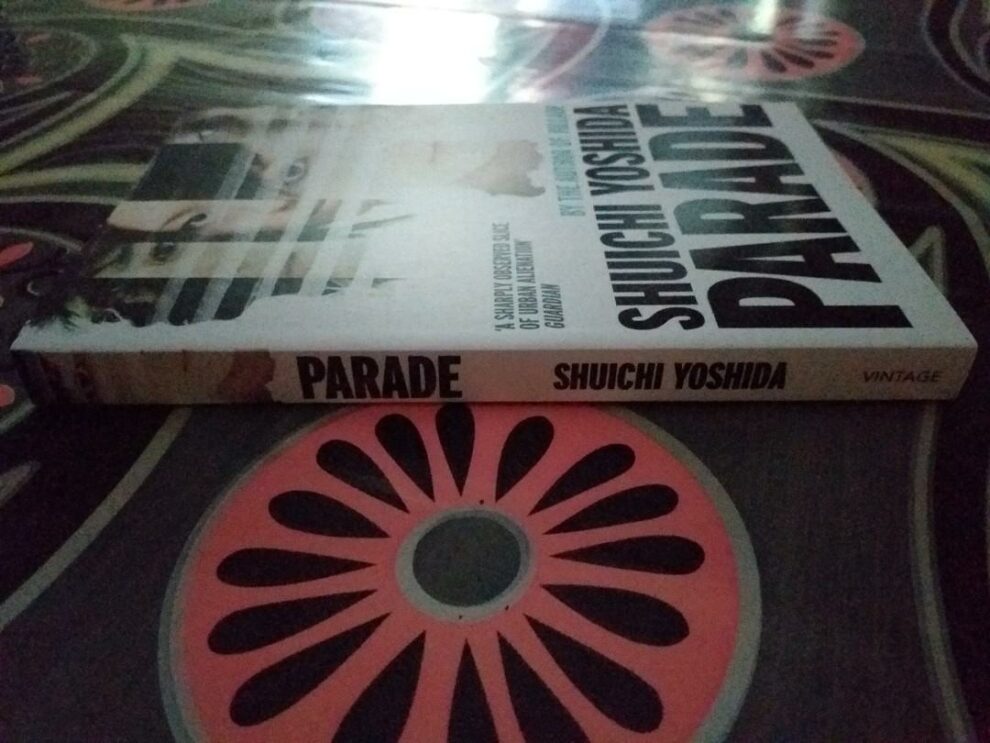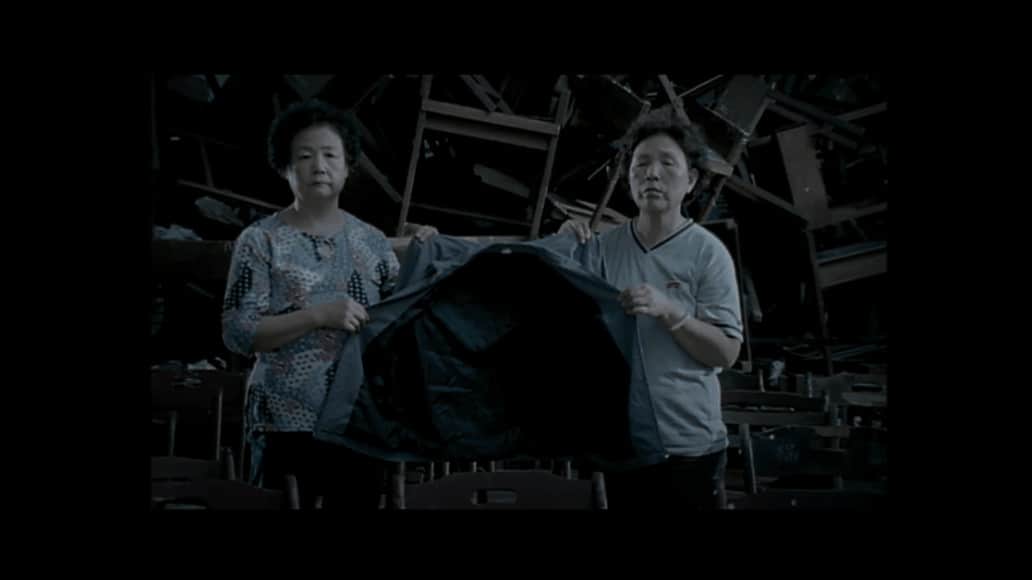Shuichi Yoshida is quite successful in Japan, with his books having won a number of awards, while frequently being adapted on screen, with “Villain” and “The Story of Yonosuke” being two of the most renowned. The same applies to “Parade” Which won that Yamamoto Shugoro Prize in 2002, and was made into a movie by Isao Yukisada in 2010.
Buy This Title
by clicking on the image below
Four youths share a two bedroom apartment in a corner of Tokyo. Satoru is a young man from a rural area that came to Tokyo to study but finds himself bored and purposeless. He is also the only owner of a car in the apartment, with the others frequently asking for his help in that regard. Koto is a very beautiful girl, who has a rather one-sided relationship with Tomohiko, a rising actor whose mother suffers from dementia. She does not do much, just stays in the living room all day watching dramas, waiting for him to call and meet him in a hotel whenever he does.
Mirai works in retail but also has a rather dark side, which no one knows about, frequently getting drunk and returning home in shambles, plus having a number of connections in various bars in Tokyo. Naoki works for a film company, and seems the most normal of all. He is the original renter of the apartment, which he lived in with his former girlfriend Misaki, with the two of them still retaining a relationship, with her frequently staying in the apartment, despite the fact that she has a rich boyfriend.
At one point, Satoru, a young man no one knows how he came to be in the apartment initially, also starts living with them. Eventually it is revealed that he is homeless and works as a male prostitute. At the same time, people are coming and going at the apartment next door, raising the suspicions of the protagonists, and a series of violent attacks on women around the area are also taking place.
Shuichi Yoshida writes a slice-of-life book that seems to focus on urban alienation, and how it can occur even between people living in the same apartment. At least, that is what it seems to be happening initially, although the various twists that appear in the various chapters of the book (one for every character) eventually reveal that something else is also happening in the background.
At the same time, that all characters seem to be hopeless, more or less depending on the individual, and for different reasons, and most of them seem to harbor some dark secret, adds another level to the narrative. Furthermore, it also makes a comment about human nature, about how people may not be exactly what they seem, and even more interestingly, sometimes discretion can also imply deep understanding. Lastly, one could say that Yoshida here also states that not being ambitious in any aspect of your life, having no particular goals, having a number of issues, and essentially being a loser can be ok, particularly if you find other similar people to surround you.
Also impressive is the fact that although the basis for something really shocking to happen and turn the whole into a crime novel does exist, Yoshida does not cross into that territory almost at all, keeping the whole thing about the normal lives of relatively abnormal individuals. In that fashion, when the twist does come, it is actually quite shocking, even if the author, once more, does not lean particularly on this aspect.
On the other hand, this also emerges as one of the most significant issues of the novel. The first chapters appear to build on something, creating some sort of tension which is completely forgotten, however, as the chapters change. The road trip around Tokyo, and the everyday life of the protagonists does become dull to follow after a point, in an issue that actually lasts for more than a third of the book. Various elements, such as the appearance of Satoru, an unexpected pregnancy, what is happening next door and the attacks break this flatness, but not to a point to overcome it completely, particularly from chapter three onwards.
The language is simple here, as usually in Japanese novels, with the change of person of perspective (all chapters are narrated in first person) working well for the narration of the story, also providing a pleasant change of angles. Yoshida does not use the ‘Rashomon Effect' having his protagonists narrate the same events from different points of view, but instead always moves the story forward. The approach works well, although it would work better if something actually happened through this progress. Or better, if more happened.
As such, in the end, “Parade” emerges as a mixed bag, having its moments, but also lacking tension for a significant part of it. Definitely on a lower level than “Villain”.
















